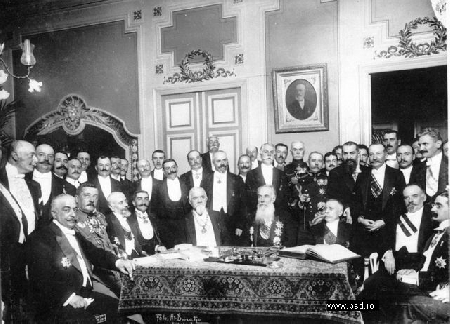120 Years of Romanian Social Democracy
In its early days, Western socialism was an ideology and social reform project aimed at alleviating the poverty of the working class. Socialism was strictly related to industry and the standard of living set by economic and social relations between factor

Steliu Lambru, 05.08.2013, 12:00
Such was the case of socialism in Romanian society, where it started spreading from the West quite early. After the revolutionary moment of 1848 and with the establishment and consolidation of the Romanian modern state between 1859 and 1866, socialism started to gain momentum. The development of industry led to the emergence of a social group that would respond to socialist ideology.
Socialist periodicals such as the Romanian Telegraph, set up in 1965, the Worker, the Romanian Worker, the Typographical Annals or the Contemporary addressed socialist intellectuals and partisans of progressivism who sought to circulate their own ideas in the public sphere. Leading contributors included Ioan and Gheorghe Nadejde, Panait Musoiu, Zamfir Arbore and Titus Dunca. Romanian socialism was also infused with a good dose of Russian socialism via the scholarship of narodniks such as Constantin Dogrogeanu-Gherea, Nicolae Zubcu-Codreanu, N. Russel and other immigrants oppressed by the Tsarist regime.
Dogrogeanu-Gherea was perhaps the most prolific and influential socialist scholar of nineteenth-century Romania. His task was extremely difficult. Whereas on the one hand he had to respond to those who believed that socialism was at odds with the Romanian spirit, he also had to adapt Marxist principles to rural society. Sociologist Calin Cotoi explains the predicament of Romanian socialists in the public sphere, of Dogrogeanu-Gherea in particular.
Calin Cotoi: “Gherea’s case was most interesting, because his works reflect the tension between the theory of form without content and Marxism. Most of Gherea’s arguments had a clear-cut purpose, namely of legitimising the need for a local socialism. To him, criticism against Romanian socialism could be summed up in one phrase: “Socialism is an exotic plant in Romania”, which meant that advocates of socialism were strange individuals who had little to say, although they were nice people from a progressive and moral point of view. Romanians did not form a society that responded to socialist rhetoric. Gherea’s strategy, which was interesting at the time, was to turn society into something exotic and socialism into something normal. Romanian society was a monstrosity; it was the opposite of serfdom and as such was an oddity. Gherea dwelt on the abnormality that characterised Romania. The biggest problem, Gherea argued, was that any analysis of Romanian society should employ the same terms as in the West, since they meant one thing over there and a completely different thing here. He even proposed a law in order to account for abnormality which he termed ‘the law of social orbiting’”.
The setting up of the first Romanian socialist party, the Romanian Workers’ Social Democratic Party, on March 31st 1893 was a difficult enterprise. Given the system of voting, which back then was based on the wealth of voters, the party’s election base was extremely small. The party program was drawn up by Dobrogeanu — Gherea, who found inspiration in the Erfurt Program of the German Social Democratic Party. Gherea believed that the idea would gradually create the critical mass of followers.
Calin Cotoi: “His strategy was to find social abnormality in Romania in order to preserve the normality of the socialist position, an approach that partially worked. At one time he said, quote ‘socialism is just like liberalism in Romania’. If it hadn’t been for liberalism, modern Romania would not have existed. Socialism is the next stage. Imagine how it would have been if the Romanian liberals had started reforms in 1770 instead of 1848”. That was Gherea’s main argument. What is interesting is that when somehow forced to explain why socialism was necessary, Gherea used arguments typical of the Russian populism. He claimed socialism was something we owed to the people who fed us, dressed us and raised us all through hard work. In fact, socialism is something rather emotional and moral. And this matches what was happening in the Romanian socialism at the turn of the century, which was a sort of sub-culture of socialism. There were small groups of people doing natural sciences and counting very much on emotional aspects. If we look at what the semi-socialist Contemporanul paper used to publish, we see many articles on natural sciences. So, it was a mixture of emotional, natural sciences, morality and social change.”
Despite considerable efforts, social democracy and its party stayed on the outskirts of Romanian politics until after WWI. These efforts were seen as the passions of some day-dreaming intellectuals’ passions, rather than valid solutions.






























